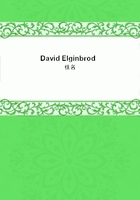
第8章
"Hoot! Dawvid, ye see we haena a stranger ilka nicht.""But really," said Hugh, "I hope this is the last time you will consider me a stranger, for I shall be here a great many times--that is, if you don't get tired of me.""Gie us the chance at least, Maister Sutherlan'. It's no sma' preevilege to fowk like us to hae a frien' wi' sae muckle buik learnin' as ye hae, sir.""I am afraid it looks more to you than it really is.""Weel, ye see, we maun a' leuk at the starns frae the hicht o' oor ain een. An' ye seem nigher to them by a lang growth than the lave o's. My man, ye ought to be thankfu'."With the true humility that comes of worshipping the Truth, David had not the smallest idea that he was immeasurably nearer to the stars than Hugh Sutherland.
Maggie having returned with her jug full of frothy milk, and the potatoes being already heaped up in a wooden bowl or bossie in the middle of the table, sending the smoke of their hospitality to the rafters, Janet placed a smaller wooden bowl, called a caup, filled with deliciously yellow milk of Hawkie's latest gathering, for each individual of the company, with an attendant horn-spoon by its side.
They all drew their chairs to the table, and David, asking no blessing, as it was called, but nevertheless giving thanks for the blessing already bestowed, namely, the perfect gift of food, invited Hugh to make a supper. Each, in primitive but not ungraceful fashion, took a potatoe from the dish with the fingers, and ate it, "bite and sup," with the help of the horn-spoon for the milk. Hugh thought he had never supped more pleasantly, and could not help observing how far real good-breeding is independent of the forms and refinements of what has assumed to itself the name of society.
Soon after supper was over, it was time for him to go; so, after kind hand-shakings and good nights, David accompanied him to the road, where he left him to find his way home by the star-light. As he went, he could not help pondering a little over the fact that a labouring man had discovered a difficulty, perhaps a fault, in one of his favourite poems, which had never suggested itself to him. He soon satisfied himself, however, by coming to the conclusion that the poet had not cared about the matter at all, having had no further intention in the poem than Hugh himself had found in it, namely, witchery and loveliness. But it seemed to the young student a wonderful fact, that the intercourse which was denied him in the laird's family, simply from their utter incapacity of yielding it, should be afforded him in the family of a man who had followed the plough himself once, perhaps did so still, having risen only to be the overseer and superior assistant of labourers. He certainly felt, on his way home, much more reconciled to the prospect of his sojourn at Turriepuffit, than he would have thought it possible he ever should.
David lingered a few moments, looking up at the stars, before he re-entered his cottage. When he rejoined his wife and child, he found the Bible already open on the table for their evening devotions. I will close this chapter, as I began the first, with something like his prayer. David's prayers were characteristic of the whole man; but they also partook, in far more than ordinary, of the mood of the moment. His last occupation had been star-gazing:
"O thou, wha keeps the stars alicht, an' our souls burnin' wi' a licht aboon that o' the stars, grant that they may shine afore thee as the stars for ever and ever. An' as thou hauds the stars burnin' a' the nicht, whan there's no man to see, so haud thou the licht burnin' in our souls, whan we see neither thee nor it, but are buried in the grave o' sleep an' forgetfu'ness. Be thou by us, even as a mother sits by the bedside o' her ailin' wean a' the lang nicht; only be thou nearer to us, even in our verra souls, an' watch ower the warl' o' dreams that they mak' for themsels. Grant that more an' more thochts o' thy thinkin' may come into our herts day by day, till there shall be at last an open road atween thee an' us, an' thy angels may ascend and descend upon us, so that we may be in thy heaven, e'en while we are upo' thy earth: Amen."